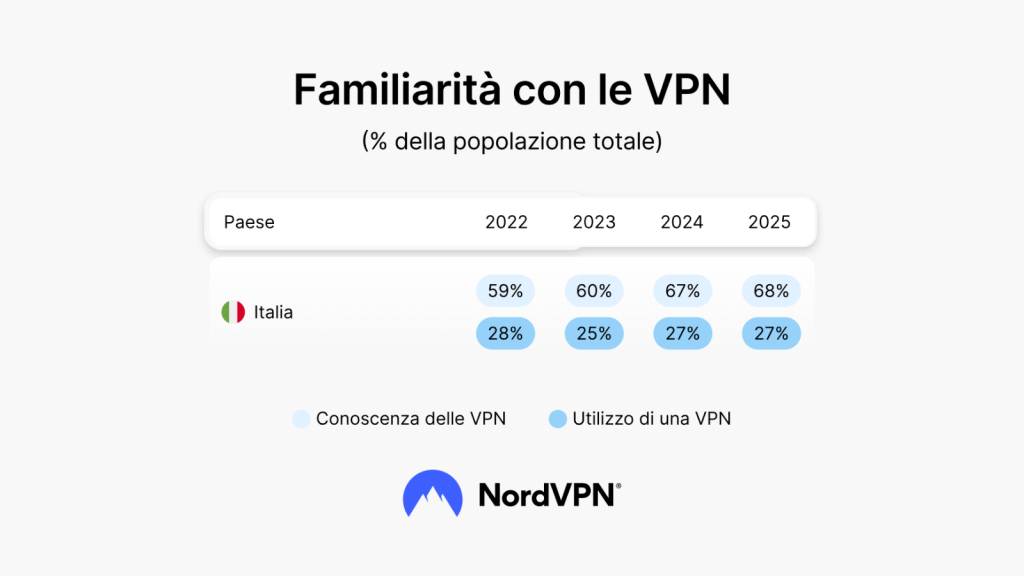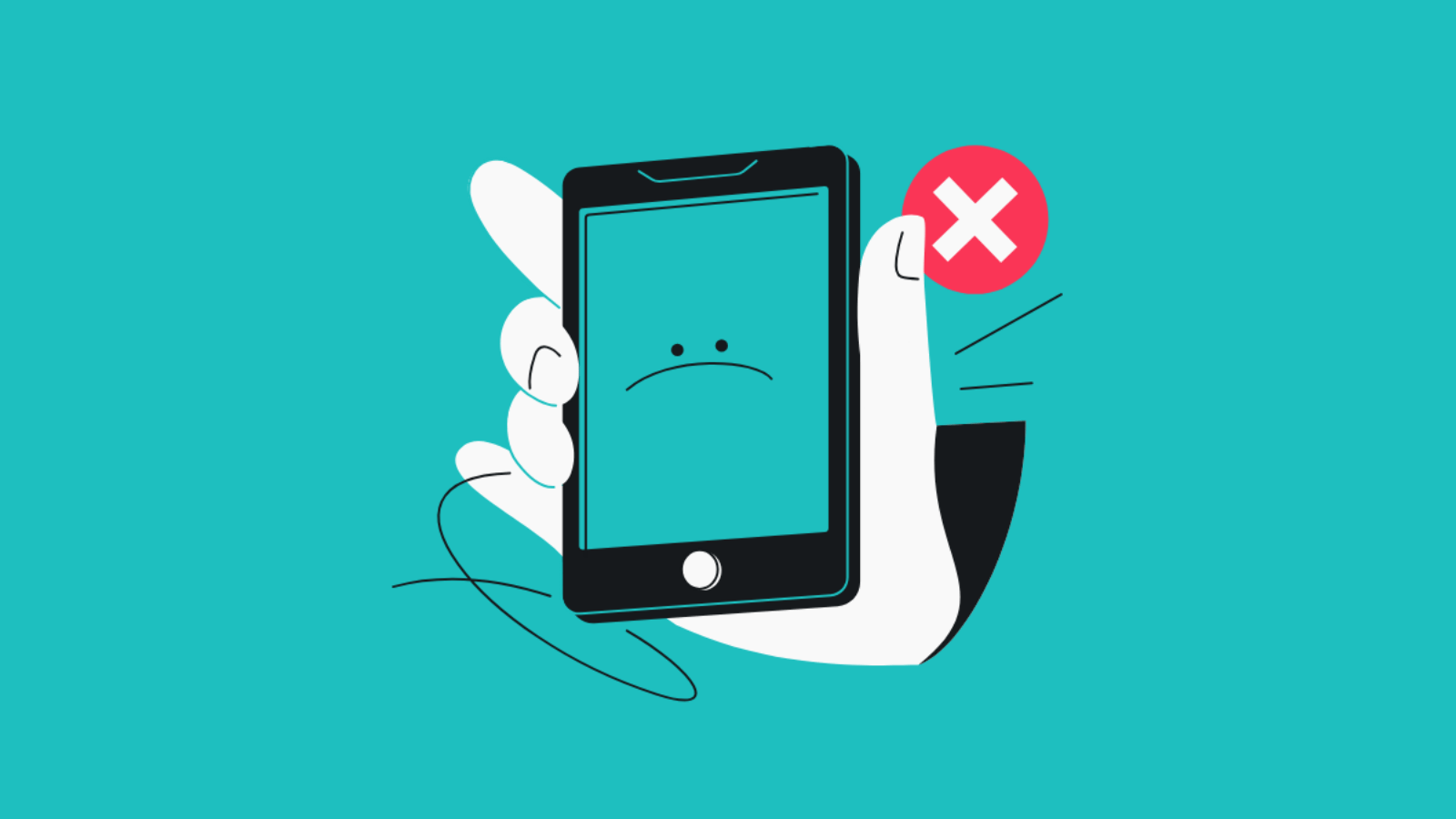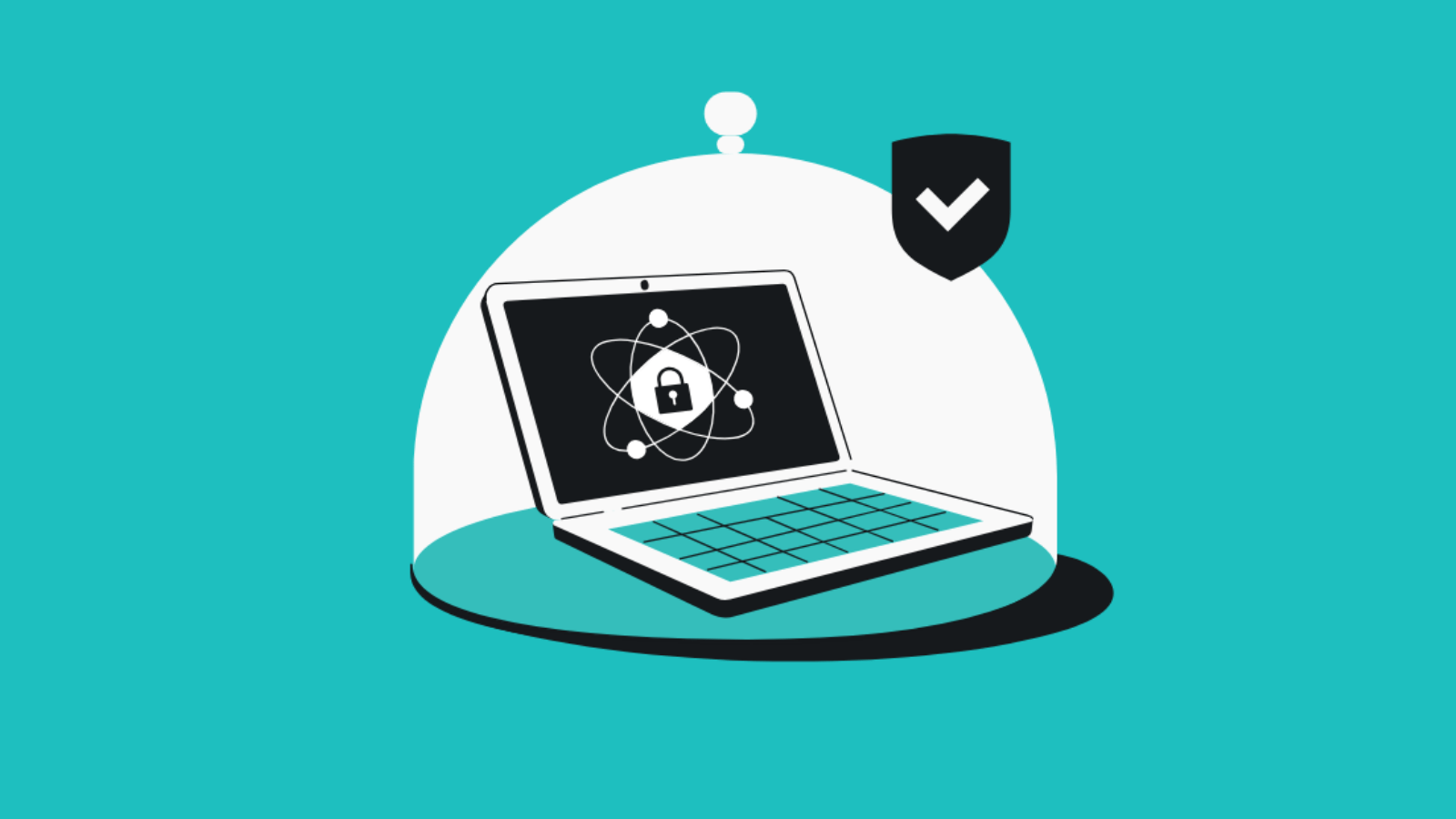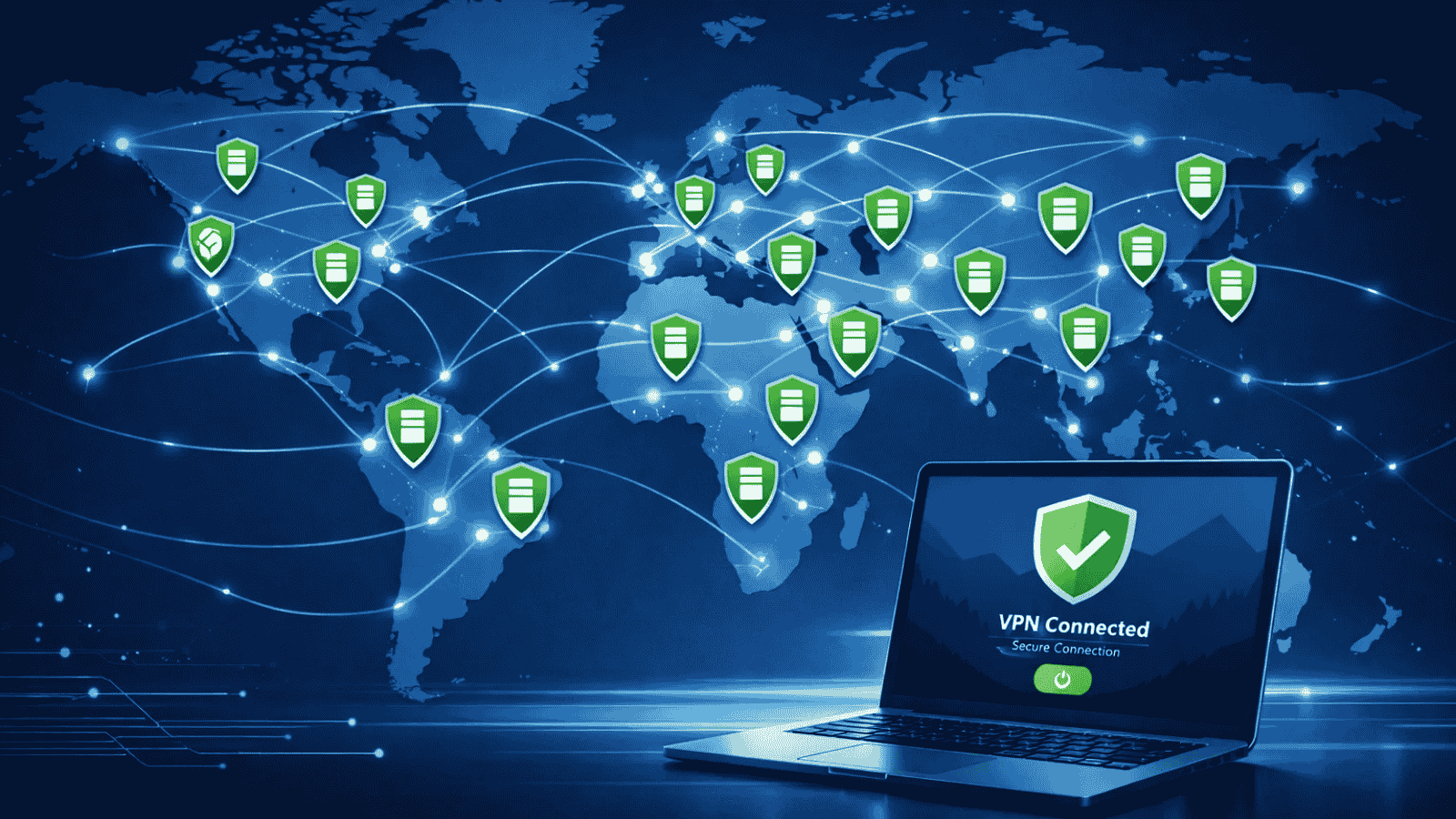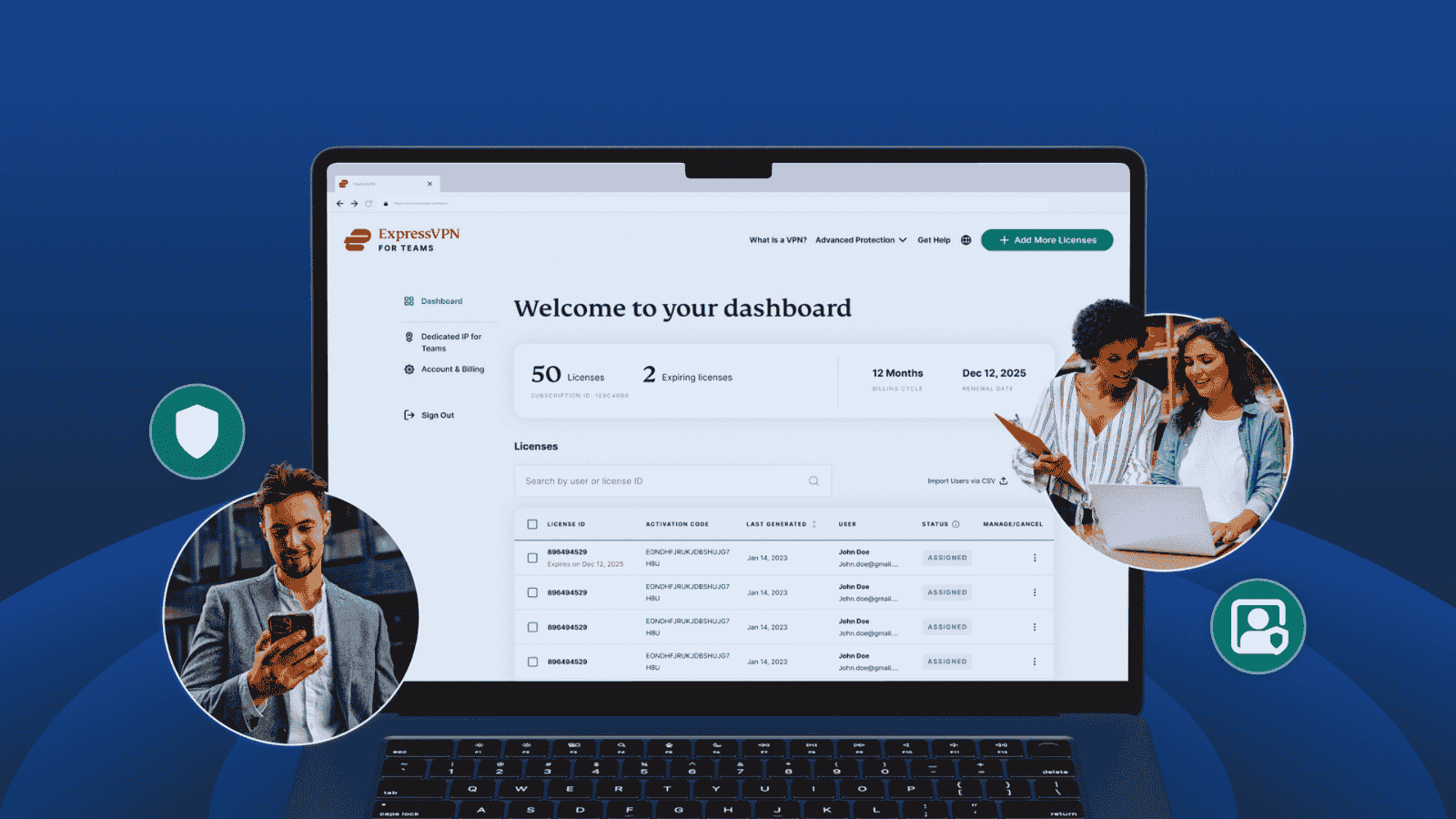
Free VPNs Still Tempt Italians Despite Privacy Fears, NordVPN Survey Finds
- VPN Awareness Rising: 68% of Italians know what a VPN is, up 9% since 2022.
- Free VPNs Persist: 11% of Italians use free VPNs despite privacy and security risks.
- Privacy Priority: Italians choose VPNs mainly for data privacy and device security protection.
A new NordVPN study highlights a growing trend in Italy’s VPN usage habits - while more users understand the importance of online privacy, many still rely on free VPN services, often overlooking potential security risks.
The research, conducted in August 2025 across multiple countries, including Italy, France, Germany, Spain, the UK, the US, and Australia, surveyed around 1,000 respondents per country. Participants were asked about their VPN usage, whether they used free or paid versions, and their motivations for doing so.
According to the findings, Italians are increasingly aware of VPNs, with 68% of respondents knowing what a VPN is - a 9-point increase from 2022. About 27% actively use one, and another 4% plan to start within the next year.
Privacy and Security Remain the Top Reasons for VPN Use
The study found that privacy protection and online security are the main drivers behind VPN adoption. Globally, these two factors far outweigh reasons such as content access or bypassing geo-restrictions.
In Italy, 38% of respondents said their main goal in using a VPN is to protect personal data, while 37% cited security as their top concern. Similar trends were recorded in France and other European countries.
NordVPN noted that VPNs have become a mainstream privacy tool, no longer reserved for tech experts. Many users now view them as an everyday safeguard against online tracking and cyber threats.
Free VPNs Still Common Among Italians - But Use Is Declining
Despite increased awareness, many Italians still rely on free VPNs. The survey shows that 11% of users in Italy use free services, while 9% use paid VPNs.
However, free VPN usage has declined from 14% in 2022, suggesting that more Italians are beginning to move toward paid, more secure alternatives. In comparison, in countries like France, Belgium, and Germany, paid VPNs remain dominant, though usage has slightly dropped there as well.
NordVPN warns that free VPNs often compromise user privacy through data monetization, weak encryption, or limited protection features. These services may track browsing habits to generate revenue or sell user data to third parties.
Common risks of free VPNs include:
- Data tracking and ads that undermine privacy.
- Outdated security protocols and weak encryption.
- No kill switch or verified no-log policies.
- Higher risks of IP, DNS, or WebRTC leaks.
- Slow, unreliable performance due to limited servers.
NordVPN’s report emphasizes that “free” often comes at the cost of users’ personal data.
How to Choose a Secure VPN: NordVPN’s Checklist
The study also provides guidance for users on how to evaluate VPN reliability. NordVPN suggests checking for three key assurances:
1. Privacy Guarantee:
Look for verified no-log policies, RAM-only servers as well as clear data collection limits. Independent audits are crucial for credibility.
2. Security Assurance:
Ensure support for modern VPN protocols like WireGuard, OpenVPN, or IKEv2/IPSec. A kill switch, malware protection, and regular updates are also essential.
3. Transparency Guarantee:
Users should know who owns the service, where it’s based, and how it handles data requests from authorities. Providers that publish transparency reports and undergo external audits demonstrate accountability.
Positive signs include obfuscated servers, split tunneling, as well as Double VPN features, while red flags include hidden ownership, no audits, or excessive app permissions.
VPN Awareness Continues to Grow
NordVPN’s findings show that Italians’ familiarity with VPNs is steadily increasing, with many recognizing the role of these tools in protecting online activity. The report also suggests that VPN use in Italy may rise in 2026, as more people prioritize privacy and security over convenience.
The study, conducted by external agencies on behalf of NordVPN, involved a nationally representative sample of adults aged 18 to 74, balanced by gender, age, and region.
As awareness spreads along with digital privacy becomes a mainstream concern, the report concludes that users are becoming more cautious about whom they trust with their data - a shift that may eventually reduce the popularity of risky free VPNs.




